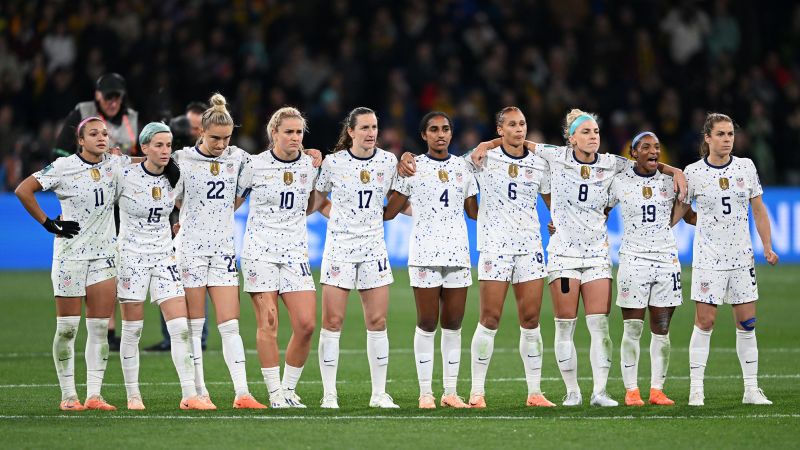CNN
—
The US women’s soccer team received more than twice the amount of abusive messages on social media than any other nation at this year’s Women’s World Cup, according to a report from FIFA and FIFPRO.
The study, commissioned by world soccer’s governing body and the global players’ union, identified the facts that the team was the two-time reigning champion and the perception of players not singing the US national anthem – with abusive posts labeling the players “unpatriotic or Anti-American” – as factors behind the heightened abuse.
The level of abuse across the tournament peaked when the US was knocked out of the round-of-16 by Sweden in a dramatic penalty shootout. The data found politicians’ posts – mostly supportive messages, such as the one from US President Joe Biden – triggered a pile-on.
Messages sent from North and Central America contributed to 67% of all abuse sent during the compeition.
The report was a result of FIFA and FIFPRO’s plan to protect players from online abuse, using its social media protection service (SMPS) tool which has now been used in eight international tournaments over the past 12 months.
FIFA says the service, which relies on artificial intelligence (AI), analyzed 5.1 million posts in 35 different languages to protect 697 players and coaches from seeing the messages.
The report found that one in five players at the tournament were targeted with discriminatory messaging, with “homophobic, sexual and sexist abuse” posts accounting for almost half of all messages across Facebook, Instagram, TikTok, X (formerly Twitter) and YouTube.
Two players, one from the US and the other from Argentina, were targeted above all others. FIFA did not disclose the name of those players.
“There can be no place on social media for those who abuse or threaten anyone, be that in FIFA tournaments or elsewhere,” FIFA President Gianni Infantino said in a statement.
Players at the World Cup in New Zealand and Australia were also 29% more likely to receive online abuse than their male counterparts at the men’s World Cup in Qatar.
The final between Spain and England also saw a spike in sexual and misogynistic abuse, notably triggered by Luis Rubiales’ unwanted kiss on World Cup-winning star Jennifer Hermoso.
“The abuse that persists online impacts football players all over the world and it cannot be ignored. This toxic online environment is a risky place to be in for players and it affects their mental health and wellbeing,” FIFPRO President David Aganzo said in a statement.
“Football has a responsibility to protect the players around their workspace.”






